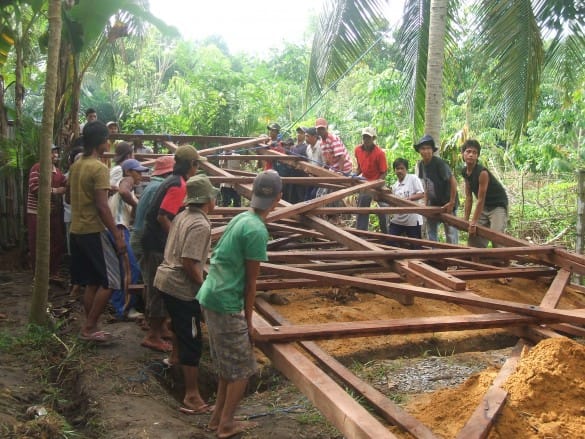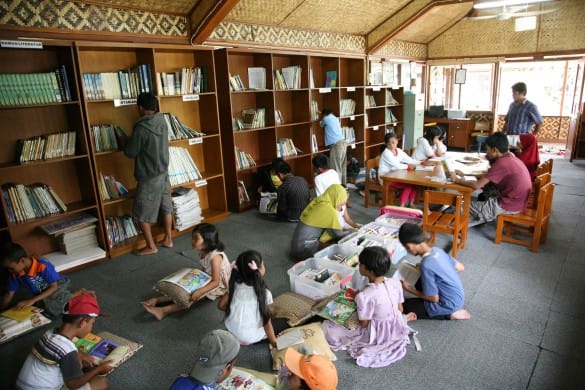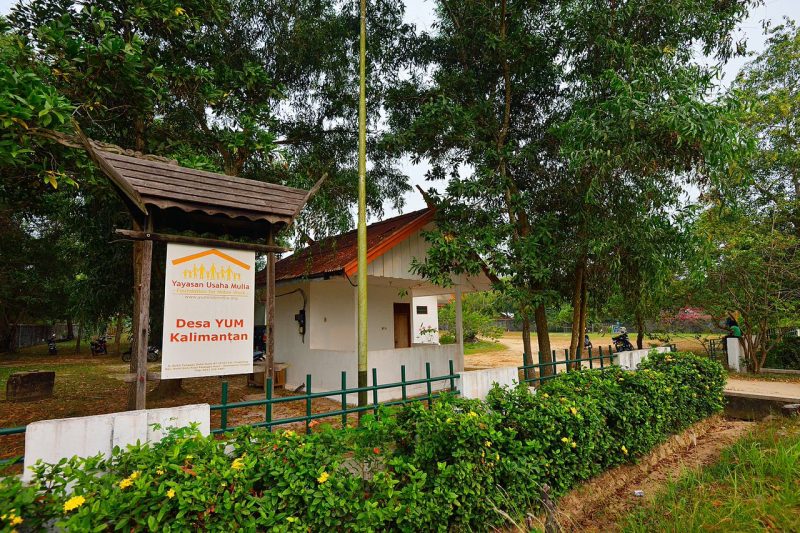Quality of life is an issue in Indonesia for those living below the poverty line. Although some believe that the country has much improved since gaining independence, many Indonesians are in reality still very poor. Non-profit organization Yayasan Usaha Mulia (YUM) aims to lift the underprivileged out of this problem.
Indonesia is home to approximately 245 million inhabitants, which indeed presents a challenge when maintaining and improving quality of life. With a slowing economic growth, the country is now dealing with a rise in poverty by 2.8 percent.
The Central Bureau of Statistics, or better known as Badan Pusat Statistik (BPS), reveals that the total number of people living below the poverty line is approximately 28.2 million, suggesting an increase from September 2014 to September 2015.
But even before the current economic slowdown, Indonesia has long been facing the problem of low quality of life, partly due to poor education. One of the board members of YUM, Olvia Reksodipoetro, explains how this hinders people from succeeding and realizing the lives they truly deserve.
“Unfortunately, for too many years, too little was spent on education, in particular outside of big cities where the quality of education is very low,” she argues. Reksodipoetro adds that decent jobs would also be difficult to come by for those lacking in proper education, thus preventing them from earning a sufficient income to support their families.
YUM cares for people regardless of their backgrounds. “We believe in providing equal services to all regardless of religion, gender, race, ethnicity, or health status; and we recognize the interconnectedness of issues surrounding poverty,” Reksodipoetro says.
YUM’s history dates back to the late 1960s, where three dedicated social workers built a mobile medical clinic to accommodate poor people in the slum areas of Jakarta. These foreigners, Wilbert Verheyen, Sister Rina Ruigrok and Ibrohim Wessels, who were all members of an organization called Subud, later motivated the birth of YUM.
In 1976, YUM was officially established by Muhammad Subuh (who also founded Subud) with goals of providing healthcare, and social and educational support to the poor by working with less-fortunate communities in three main areas: health, education and community development. Hoping to improve the poor’s living standards, YUM works on multiple projects in regions like West Java and Central Kalimantan.
One of their projects in West Java is the establishment of Cipanas YUM Village, where the organization develops programmes which aim to benefit its community. Initially, the village was an orphanage and a TB clinic until YUM transformed it into a community development centre in 2010.
“The communities around the Cipanas YUM Village are generally quite poor and we hope our projects – vocational training, preschool, tutoring classes – are helping to improve their education, which eventually could lead to better job opportunities in the future. We also try to open their minds through the books at the library and the activities we run there,” Reksodipoetro explains.
YUM makes sure that the people of Cipanas YUM Village learn how to grow their community, through building facilities in various sectors such as an organic farm in agriculture and tutoring classes in education. YUM additionally set up healthcare clinics (posyandu) to socialize the importance of health and nutrition.
Interestingly, there are also activities and programmes specifically addressed for children like Science Club Activities, and one that is currently in the works – A Kid’s Entrepreneurship – which plan to foster children through increasing their curiosity, developing their problem-solving skills, and showing them an array of career options which should inspire them to dream big.
To achieve their targets, YUM partners with several institutions, both local and international. The organization is affiliated with Susila Dharma International Association (SDIA), a social branch of Subud. With SDIA, they are able to work together with foreign organizations and attract them to support their projects.
YUM, for instance, partners with BARCLAYS bank who funds a vocational training centre in Kalimantan; while the one in Cipanas is mostly funded by the Priscilla Hall Memorial Foundation. Alongside these, the German government (BMZ) also funds a very successful malaria control programme in Central Kalimantan.
Determined to remain transparent and accountable, YUM admits that these partnerships benefit them in fulfilling their ambitions. “When we design a project to be funded by one of our partners, we ensure that what we have promised to do will be delivered,” says Reksodipoetro.
Despite their success in building partnerships, YUM is still open to people who wish to get involved. “An NGO like ours is always in need of funding to run its projects, but also of skilled volunteers,” says Reksodipoetro.
Despite all of their efforts, Reksodipoetro believes poverty in Indonesia cannot be solved until the nation can succeed in tackling its number one problem: corruption. “I think the other major impediment to improving the quality of life of Indonesians is corruption at all levels,” she adds.
If Indonesia set out to eradicate corruption once and for all, its people might just stand a chance to a better quality of life. As Reksodipoetro concludes, “I strongly believe Indonesia would be a much stronger country if it were possible to eliminate most of the corruption going on at present.”
For more information please visit YUM’s website at www.yumindonesia.org




